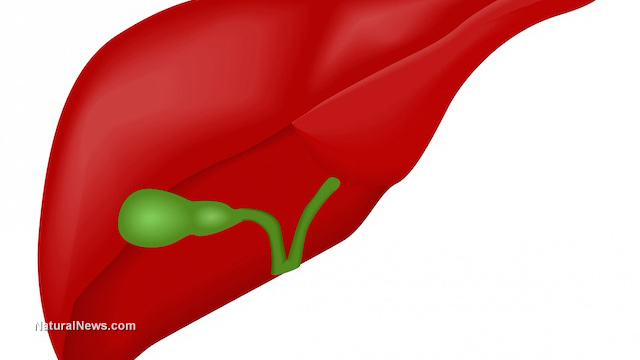
TheBreakaway
Zy Marquiez
March 5, 2017
What is oil pulling? Simply put, oil pulling is putting a spoonful of oil in your mouth and swishing the oil around, anywhere from a few minutes to twenty minutes. After finishing, you then proceed to spit out the oil making sure not to swallow it. That last part is integral, because all the toxins that leave your mouth will become part of the swished components that have seeped from your mouth after oil pulling, and you sure as heck don’t want that entering your system.
Oil pulling itself goes back a few thousand years. In fact, it has its origins in Ayurvedic medicine in India, if not before. Ancient Ayurvedic medical texts outlined this practice, and the practitioners found out that rinsing the mouth with vegetable oil ‘not only cleanses the mouth but restores health to the body. In fact, this process is said to cure a few dozen system diseases.[1]
Because of those facts, Oil Pulling Therapy – Detoxifying & Healing The Body Through Oral Cleansing by Dr. Bruce Fife is a very important, and underrated book.
The reason Oil Pulling Therapy is important is because it gets at the heart of the matter regarding disease: the mouth. Being a mirror to our bodies, if you have dismal dental health then you are undoubtedly going to experience a kaleidoscope of health problems.
Some of the conditions that are helped by oil pulling are acne, allergies, arthritis, asthma, back pain and neck pain, bad breath, bronchitis, chronic fatigue, colitis, crohn’s disease, constipation, dental cavities, dermatitis, diabetes, eczema, hypertension, hemorrhoids, insomnia, migraine headaches, mucous congestions, peptic ulcers, PMS, periodontal disease, bleeding gums, sinusitis, and tooth abscess.[2]
To continue along the same lines, an incisive passage in the book follows:
“In addition to the above-mentioned conditions, medical studies have indicated that the following can also be directly related to oral health and may respond to oil pulling therapy: Acidosis, Adult Respiratory Distress Syndrome [ARDS], Athrosclerosis, Blood Disorders, Brain Abscess, Cancer, Emphysema, Gallbladder Disease, Gout, Heart Disease, Hyperglycemia, Infertility, Kidney Disease, Liver Disease, Meningitis, Nerve Disorders, Osteoporosis, Paget’s Disease, Pneumonia, Preeclampsia, Preterm/Low Birth Weight Babies, Psychotic Episodes, Stroke, Toxic Shock Syndrome, and many types of infectious disease.”[3]
Many people will instantly think, “But how is it possible that oil pulling can help so much?” Excellent question. As alluded to before, the mouth is the gateway to the body, and if the mouth exhibits poor dental health, so will the body. Since the mouth is a breeding ground for all types of germs, it’s easy to see how these germs, if allowed to remain in the mouth, “can migrate to other parts of the body, cause infections, and alter body chemistry, leading the way to any number of infectious and degenerative conditions.”[4]
For me, personally, there have been quite a few benefits of oil pulling. As someone whose oil pulled for nigh 3 years, it’s helped my health quite a bit. Not only do my teeth feel clean, but they are also whiter. Additionally, I don’t experience the pain in my gums that used to happen in the past. Although I can’t prove it, I do believe myself that oil pulling has also helped me tackle issues with Candida that have taken place in the past. Furthermore, my regularly scheduled headaches went away, my gums don’t ache when biting foods and are much firmer and healthier, and also don’t experience allergies as much.
The great part about oil pulling is that it’s not only one of the most simplest methods to aid health, but also has nigh no side effects when compared to prescription drugs, which have many. In fact, properly taken, FDA approved prescription drugs cause over 100,000 deaths yearly. That’s certainly something you’ll never hear of coconut oil! That’s a whole ‘nother can of worms however.
In addition, oil pulling, unlike brushing your teeth, gets into many crevices that the brush won’t get into. This is because “brushing only reaches 60 percent of the surfaces of your teeth, leaving plague in hard-to-reach areas such as in-between teeth.”[5]
Ironically, although benefits of oil pulling go back a few thousand years, it is rarely known to most people. That’s an intriguing conundrum, except when one realizes that modern medicine goes by the adage that for every ill there is a pill, then you start to see why oil pulling goes against the grain as the system pushes for pills, rather than lifestyle changes and as well as dietary changes. These changes, ironically, are on par with what our ancestors did, which is why they were vastly healthier than we are as a ‘modern’ society nowadays.
All things considered, oil pulling is one of the cheapest, cost-effective, safe, and efficient ways to take control of one’s health. Individuals of all ages can do this. The question isn’t why SHOULD you do it, the question is, why NOT? But don’t believe me, do your own research, and you will see the effects.
_________________________________________________
Sources:
[1] Dr. Bruce Fife, Oil Pulling Therapy – Detoxifying & Healing The Body Through Oral Cleansing, p. 86.
[2] Ibid., p. 12.
[3] Ibid., pp. 11-12.
[4] Ibid., pp. 89-90.
[5] Ibid., p. 18.
_________________________________________________
This article is free and open source. You have permission to republish this article under a Creative Commons license with attribution to Zy Marquiez and TheBreakaway.wordpress.com.





